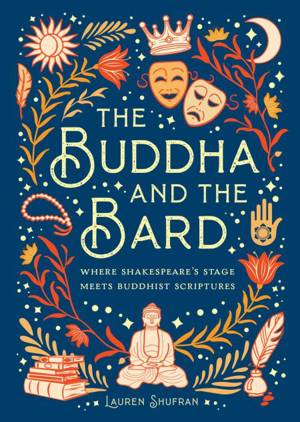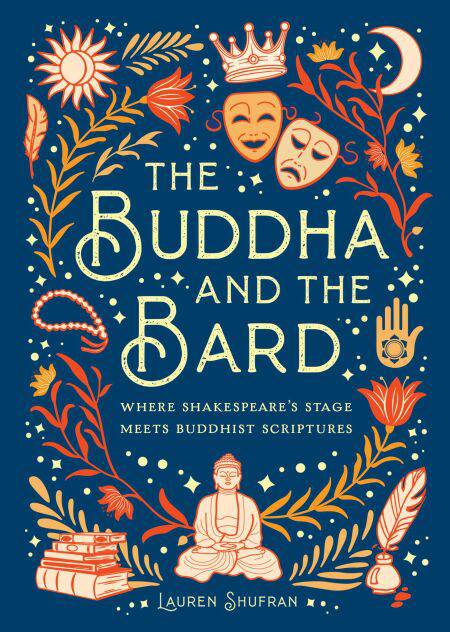
Bedankt voor het vertrouwen het afgelopen jaar! Om jou te bedanken bieden we GRATIS verzending (in België) aan op alles gedurende de hele maand januari.
- Afhalen na 1 uur in een winkel met voorraad
- In januari gratis thuislevering in België
- Ruim aanbod met 7 miljoen producten
Bedankt voor het vertrouwen het afgelopen jaar! Om jou te bedanken bieden we GRATIS verzending (in België) aan op alles gedurende de hele maand januari.
- Afhalen na 1 uur in een winkel met voorraad
- In januari gratis thuislevering in België
- Ruim aanbod met 7 miljoen producten
Zoeken
Omschrijving
What does Shakespeare have to teach us about mindfulness? What Eastern spiritual views about death, love, and presence are reflected in the writings of The Bard? The Buddha and the Bard reveals the surprising connections between the 2,500-year-old spiritual leader and the most compelling writer of all time.
“Shufran’s compelling juxtapositions will encourage the reader to ask the deepest questions of themselves while delighting in the play of resonances across a cultural and historical divide.” – YOGA Magazine
Shakespeare understood and represented the human condition better than any writer of his time. As for the Buddha, he saw how to liberate us from that condition. Author Lauren Shufran explores the fascinating interplay of Western drama and Eastern philosophy by pairing quotes from Shakespeare with the tenets of an Eastern spiritual practice, sparking a compelling dialogue between the two. There’s a remarkable interchange of echoes between Shakespeare’s conception of “the inward man” and Buddhist approaches to recognizing, honoring, and working with our humanness as we play out our roles on the “stage” of our lives.
The Buddha and the Bard synthesizes literature and scripture, embodied drama and transcendent practice, to shape a multifaceted lyric that we can apply as mindful practice in our own lives. Shufran’s compelling juxtapositions will encourage the reader to ask the deepest questions of themselves while delighting in the play of resonances across a cultural and historical divide.
“Shufran’s compelling juxtapositions will encourage the reader to ask the deepest questions of themselves while delighting in the play of resonances across a cultural and historical divide.” – YOGA Magazine
Shakespeare understood and represented the human condition better than any writer of his time. As for the Buddha, he saw how to liberate us from that condition. Author Lauren Shufran explores the fascinating interplay of Western drama and Eastern philosophy by pairing quotes from Shakespeare with the tenets of an Eastern spiritual practice, sparking a compelling dialogue between the two. There’s a remarkable interchange of echoes between Shakespeare’s conception of “the inward man” and Buddhist approaches to recognizing, honoring, and working with our humanness as we play out our roles on the “stage” of our lives.
The Buddha and the Bard synthesizes literature and scripture, embodied drama and transcendent practice, to shape a multifaceted lyric that we can apply as mindful practice in our own lives. Shufran’s compelling juxtapositions will encourage the reader to ask the deepest questions of themselves while delighting in the play of resonances across a cultural and historical divide.
Specificaties
Betrokkenen
- Auteur(s):
- Uitgeverij:
Inhoud
- Aantal bladzijden:
- 200
- Taal:
- Engels
Eigenschappen
- Productcode (EAN):
- 9798887620121
- Verschijningsdatum:
- 9/01/2023
- Uitvoering:
- E-book
- Beveiligd met:
- Adobe DRM
- Formaat:
- ePub

Alleen bij Standaard Boekhandel
+ 7 punten op je klantenkaart van Standaard Boekhandel
Beoordelingen
We publiceren alleen reviews die voldoen aan de voorwaarden voor reviews. Bekijk onze voorwaarden voor reviews.









